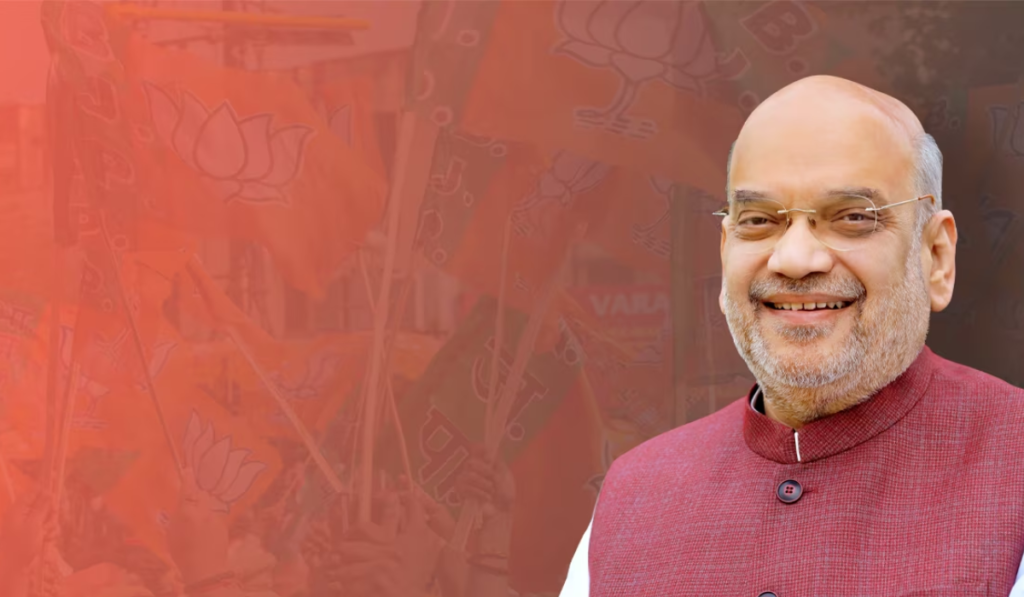Union Home Minister Amit Shah has emphasized that the implementation of the Citizenship (Amendment) Act cannot be hindered, as it is a legal mandate. He accused West Bengal Chief Minister Mamata Banerjee of misguiding the public on this matter.
Addressing a closed-door meeting of the state BJP’s social media and IT wing members at the National Library here on Tuesday, Shah said it is the party’s commitment to implement the CAA. Shah expressed confidence that the party will bag more than 35 out of the 42 Lok Sabha seats from the state. In the 2019 polls, the saffron camp had secured 18 seats.
The Bengal BJP media cell shared a list of pointers of Shah’s speech at the closed-door programme. Later in the evening, it also shared a few video clips of Shah’s speech.”We have to work to form a BJP government in West Bengal after the next assembly polls. A BJP government will mean the end of infiltration, cow smuggling and providing citizenship to religiously persecuted people through CAA,” he said at the party programme, the video clip of which was shared by the BJP’s media wing.
Also Read: PM Narendra Modi’s YouTube Channel Reaches 2 Crore Subscribers
Amit Shah Rebukes Mamata Banerjee’s Opposition to CAA
Shah launched a scathing attack on Banerjee for misleading people on the issue of CAA.”At times, she tries to mislead the people, the refugees, whether CAA will be at all implemented in the country or not. I want to say this clearly that CAA is the law of the land and no one can stop its implementation. This is the commitment of our party,” he said.
The TMC led by Mamata Banerjee has been opposing the CAA, which was passed by Parliament in 2019. The promise of implementing the controversial CAA had been a major poll plank of the BJP in the last Lok Sabha and Assembly polls. The saffron party’s leaders consider it a plausible factor that led to the rise of the BJP in Bengal.
The CAA seeks to grant Indian citizenship to persecuted minorities like Hindus, Sikhs, Jains, Buddhists, Parsis and Christians from Pakistan, Bangladesh and Afghanistan who had entered India on or before December 31, 2014.
Also Read: PM Modi Hits 20 Million YouTube Subscribers, a Global First











More Stories
Kareena Kapoor, Saif Ali Khan rushed to be by Karisma Kapoor and her kids’ side at 2am after Sunjay Kapur’s death news
PM Modi In Ahmedabad: एअर इंडिया विमान हादसे की जगह पर पहुंचे प्रधानमंत्री; मंत्री-अधिकारियों से ली जानकारी
Air India Plane Crash in Ahmedabad: One survivor found, 241 passengers feared dead